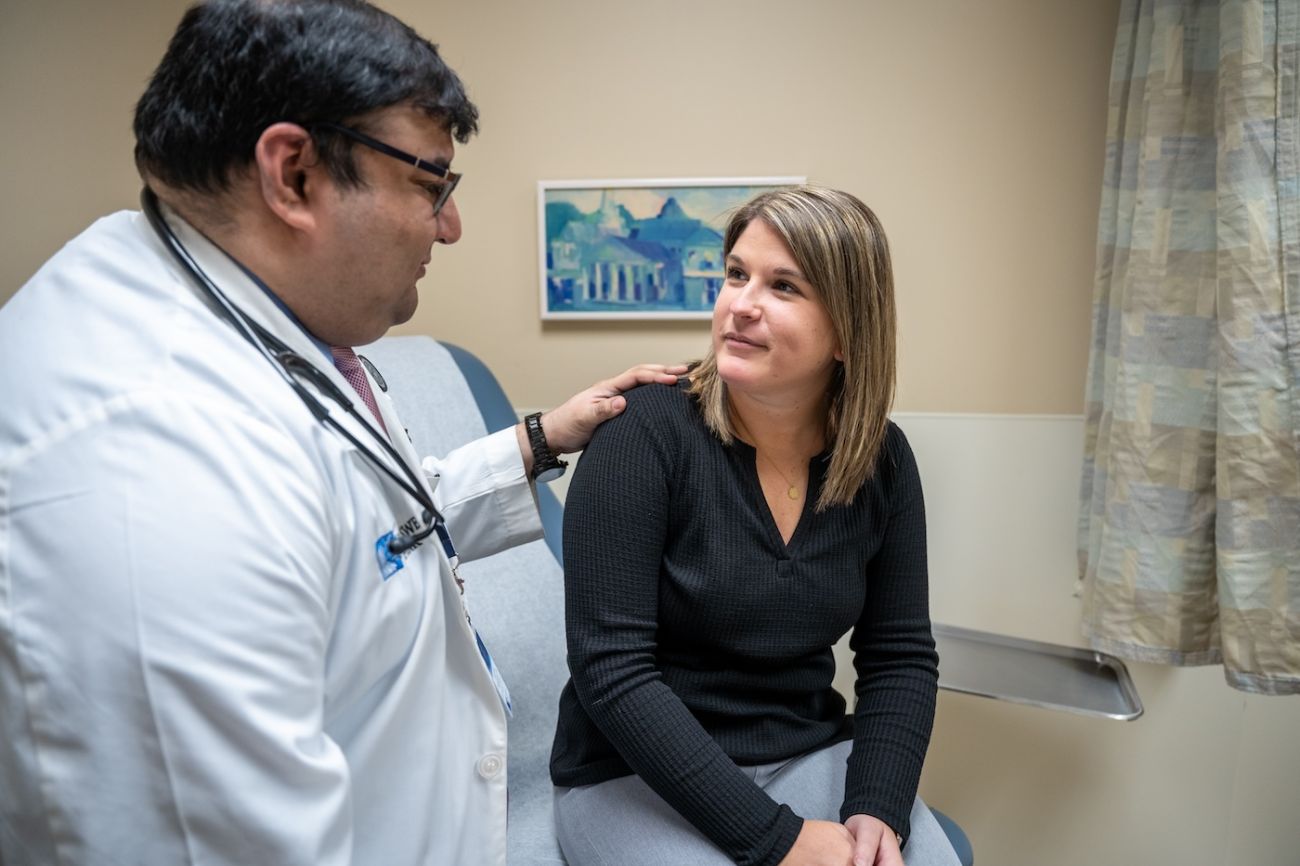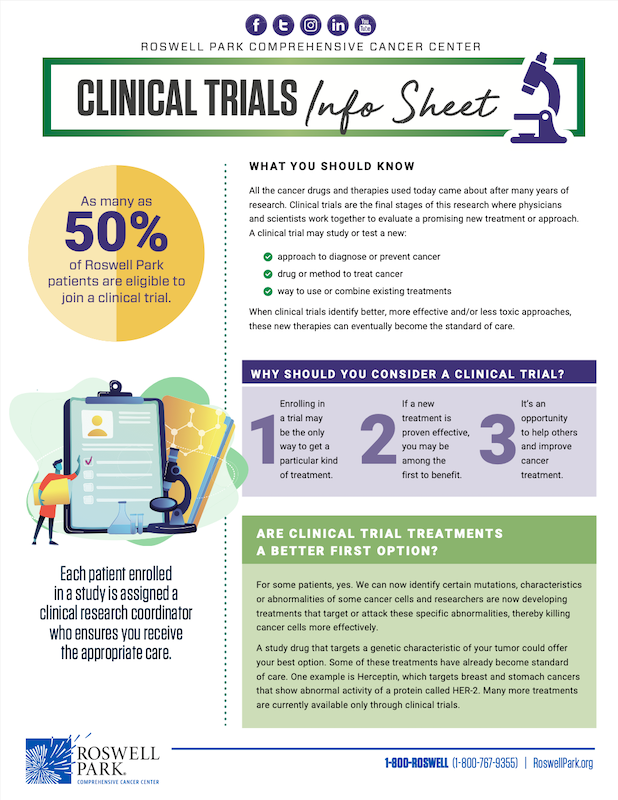What are clinical trials?
Clinical trials are the final stages of cancer research that assess a potential new drug or therapy that’s already been studied extensively in the laboratory. Trials are carefully monitored scientific studies that involve patients and offer the earliest access to these newest treatment options. Trials are conducted to determine a drug’s proper dose, how well it works and whether it’s more effective than current standard treatments. All drugs and treatment approaches currently used as standard of care were once studied in clinical trials.
Why it matters
Participating in a clinical trial is the only way to access the very latest options, oftentimes years before they become available to other providers. If you have cancer, you need the very best treatment today, not years from now.
For example, the drug pembrolizumab (brand name Keytruda) was approved in 2017 for patients whose tumors exhibit a certain feature known as mismatch repair deficiency. Roswell Park patients had access to this drug more than a year earlier through a clinical trial that was conducted here.
What options are available to colorectal cancer patients?
The robust research program at Roswell Park provides our patients with more ways to maximize their survival, including access to:
- Novel biologic targeted therapies – Our researchers are looking at ways to block signals between cancer cells. The agents currently being studied include drugs that target HER-2, EGFR, and STAT3 as well as other pathways.
- New drug combinations – Researchers are evaluating different combinations of chemotherapy drugs, immunotherapy drugs and combining chemotherapy and immunotherapy drugs to determine whether the new combinations work better than existing combinations. For patients with MSI-H tumors, combining targeted immunotherapy (PD-L1) drugs with chemotherapy can improve outcomes.
- Drugs newly-approved for other cancers to determine their effectiveness in colorectal cancer. For example, drugs that treat HER2+ breast cancer are being studied to assess whether they can enhance treatment for patients with HER2+ colorectal cancer.
- Noninvasive methods to predict response. Patient response to treatment is evaluated using the CellSearch System, which measures the number of circulating tumor cells, and other validated testing panels that measure soluble proteins in a small blood sample.
Available Clinical Trials
Roswell Park opens new clinical trials every day. Learn more about our clinical trials for colorectal cancer or call 1-800-ROSWELL (1-800-767-9355). Talk to your physician about upcoming trials not yet listed here that might be right for you.

